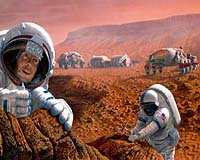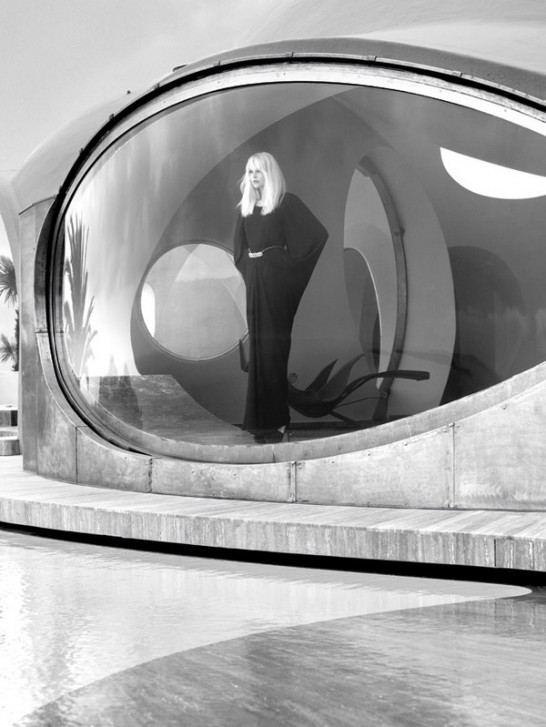If someone currently alive was to become a trillionaire, it’s probably as likely it would be Elon Musk as anyone. But the idea that the SpaceX founder will have established a city of 80,000 Earth immigrants on Mars within the next 25 years? I’d bet against that one. Brian Wang of the New Big Future thinks both outcomes are plausible. An excerpt:
Mars Colonial Transporter has been notionally described as being a large interplanetary spacecraft capable of taking 100 people at a time to Mars, although early flights are expected to carry fewer people and more equipment. The spacecraft has been notionally described as using a large water store to help shield occupants from space radiation and to possibly having a cabin oxygen content that is up to two times that which is found in Earth’s atmosphere.
The Mars colony envisioned by Musk would start small, notionally an initial group of fewer than ten people. With time, Musk sees that such an outpost could grow into something much larger and become self-sustaining, perhaps up to as large as 80,000 people once it is established. Musk has stated that as aspirational price goal for such a trip might be on the order of US$500,000, something that “most people in advanced countries, in their mid-forties or something like that, could put together [to make the trip].”
Before any people are transported to Mars, a number of cargo missions would be undertaken first in order to transport the requisite equipment, habitats and supplies. Equipment that would accompany the early groups would include “machines to produce fertilizer, methane and oxygen from Mars’ atmospheric nitrogen and carbon dioxide and the planet’s subsurface water ice” as well as construction materials to build transparent domes for crop growth.•


